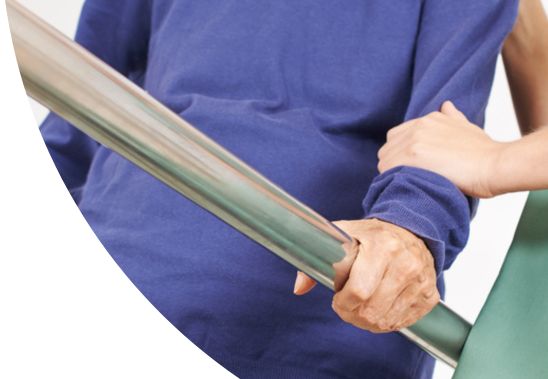20th August 2025
Meet Sean Byrne – Senior Physiotherapist
From treatment to recovery and long-term rehabilitation, physiotherapists support patients throughout their care journey. Whether helping someone regain movement after surgery or improve strength to reduce the risk of falls, physiotherapy is tailored to the individual needs of each patient, with a focus on restoring function, confidence, and independence.
Sean Byrne is a Senior Physiotherapist at Mater Private Network in Dublin. Working across inpatient and outpatient services, he collaborates closely with multidisciplinary teams to provide patient-centred care that responds to both the physical and emotional aspects of recovery.
.jpg?sfvrsn=67152e01_1)
Can you please describe your role as a physiotherapist?
My role as a physiotherapist is to support the rehabilitation of patients who are recovering from an illness or injury. I work with a wide range of individuals, including inpatients and emergency department admissions, as well as patients referred to our outpatient services.
For inpatients, we begin by reviewing their medical charts and history, and by speaking with their care team to have a complete understanding of their condition. This allows us to create a treatment plan that meets their specific needs and goals.
I also lead the Strength & Balance Programme, a six-week outpatient class designed for people aged over 65 who are looking to improve their mobility, strength, and confidence. The programme is open to everyone, including non-Mater Private patients, and focuses on preventing falls and promoting long-term independence.
What types of patients do you typically work with?
I support patients with a wide range of conditions, particularly in the medical, neurology, and oncology areas.
Medical patients include those with respiratory conditions, recovering from falls or fractures, or experiencing general deterioration. With respiratory patients, we often focus on airway clearance using breathing techniques, while those recovering from injury or surgery need a structured approach to regain mobility and return home safely.
For neurology patients, physiotherapy is centred around improving strength, balance, and coordination. We also look at how to adapt everyday activities to make life more manageable.
In oncology, we work with patients at all stages of treatment, whether they are undergoing or recovering from treatment, or receiving palliative care. We aim to support each person’s independence for as long as possible, using exercise or mobility aids depending on what is appropriate for their condition and energy levels.
We support patients beyond just physical recovery. Emotional well-being is also an important part. We offer patients clear advice, reassurance, and education to give them greater confidence in managing their recovery.
.jpg?sfvrsn=f42e1e3a_0)
How do you collaborate with the wider team to deliver patient care?
Collaboration is a key part of what we do, particularly when supporting patients with complex needs. We meet regularly with the wider multidisciplinary team, including occupational therapists, social workers, dietitians, nurses, and consultants to ensure each patient has a clear, coordinated care plan in place.
Outside of formal meetings, we maintain a regular contact with the team. If a patient needs support at home following discharge, we liaise with the social work team to explore home care packages. If nutritional support is required, we consult with our dietetics team to ensure the patient has their needs met, particularly if they are experiencing side effects such as nausea or reduced appetite due to treatment.
Some patients may require nutrition to be delivered via feeding tube. In these cases, it is important for us to understand how long this is likely to be required so that we can plan their rehabilitation and discharge appropriately.
We also work closely with occupational therapists, particularly when patients require home adaptations, equipment, or additional supports. Involving both teams in discharge planning ensures patients can return home with the confidence and tools they need to manage safely.
What is the most rewarding part of your role?
The most rewarding aspect of my role is being part of a patient’s journey from admission through to discharge. Seeing someone regain their strength and confidence after a difficult period, and knowing they feel safe and supported to return home, is incredibly fulfilling.
Often, we continue to see patients after discharge, either in outpatient sessions or as part of group exercise programmes. Watching their progress over time and seeing them get back to the things they enjoy is one of the most satisfying parts of the job.
How do you encourage patients to stay active in a realistic, sustainable way?
Consistency is key, but it does not necessarily mean you have to do something every day. I encourage patients to set realistic goals that they can maintain over time. It could be as simple as going for a short walk two or three times a week. After a few weeks or months, a simple change can become a new habit.
It is about developing sustainable habits, rather than aiming for perfection. For someone who is not used to being active, trying to do too much too soon can lead to frustration or injury. Instead, we focus on simple, achievable goals that build confidence over time.










.jpg?sfvrsn=65074fcb_1)
.jpg?sfvrsn=41cc78dd_3)
-(1).jpg?sfvrsn=29f23156_1)
